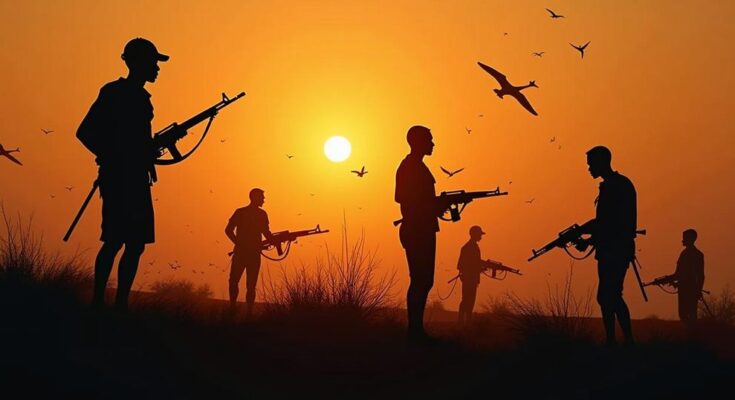The Lebanese diaspora in West Africa is profoundly affected by the Israeli-Lebanese conflict, feeling the impact of the violence from afar. Zeidan, Mirza-Branger, and Chaanine recount their fears, sadness, and communal efforts to provide support to their relatives back home, highlighting a sense of solidarity amidst turmoil.
In West Africa, the Lebanese diaspora is grappling with the emotional turmoil of ongoing conflict in Lebanon, with communities in countries such as Senegal, Côte d’Ivoire, and Nigeria experiencing the impact of these hostilities from afar. Three individuals from these nations share their personal stories of pain and solidarity amid the crisis. In Dakar, Zoheir Zeidan, a 61-year-old Shiite Muslim and telecoms company director, expressed his dire expectations for escalation of conflict between Israel and Lebanon escalating since the onset of the war in Gaza. He recounted the harrowing news of his childhood friend’s home being bombed, resulting in the deaths of several family members. “On the first day of Israel’s attack (on Lebanon), a close childhood friend of mine…had a bomb dropped on his house,” Zeidan stated, illustrating the immediate impact of the ongoing violence. He pointed out that material aid to Lebanon is organized through connections between members of the diaspora, stressing the urgency to mobilize resources for family and friends caught in the conflict. Zara Mirza-Branger, a 31-year-old sales assistant in Abidjan, described her distress over her parents’ precarious situation after they were forced to relocate to Beirut due to bombings in Tyre. “We’re always watching the news; we cannot even think about working anymore. Every time we hear that they’ve bombed, we call my parents,” she lamented. She elaborated that efforts to collect aid within the community are underway, focusing on providing necessities such as food and medical supplies. Meanwhile, George Chaanine, a 31-year-old business owner in Lagos, highlighted the broader concern for Lebanese residents across the country as hostilities spread. He indicated that logistical challenges in shipping goods have exacerbated the situation for families in Lebanon. “Because this time around…the war is almost in different parts of Lebanon and not just in certain areas,” Chaanine articulated, underscoring the pervasive threat facing his kin. Collectively, these narratives illustrate a deep sense of fear and frustration felt by the Lebanese diaspora in West Africa, who are striving to support their loved ones while confronting the powerlessness of their situation in the face of systemic indifference towards the conflict. Their stories reflect a community united in grief and action, determined to provide whatever assistance they can during this time of crisis.
The ongoing conflict in Lebanon, sparked by a series of escalating military actions, particularly the recent Israeli air strikes, has profound implications for the Lebanese diaspora, especially in West Africa. This community, comprising hundreds of thousands, is experiencing the conflict vicariously, feeling a deep emotional connection and concern for family and friends still residing in Lebanon. The war, which has intensified due to various geopolitical factors, including the backing of Hezbollah by Iran and the involvement of Palestinian factions, places the Lebanese diaspora in a state of distress as they witness the violence unfold from a distance.
The accounts from West Africa’s Lebanese diaspora underscore the emotional strain and communal solidarity manifested amid the ongoing conflict in Lebanon. Individuals such as Zoheir Zeidan, Zara Mirza-Branger, and George Chaanine illustrate the challenges faced by families divided by geography yet united by shared cultural heritage and concern for each other’s well-being. Their narratives shed light on the diaspora’s efforts to respond to the crisis and reflect the broader implications of war on global communities, challenging the indifference displayed by external observers.
Original Source: www.channelstv.com




